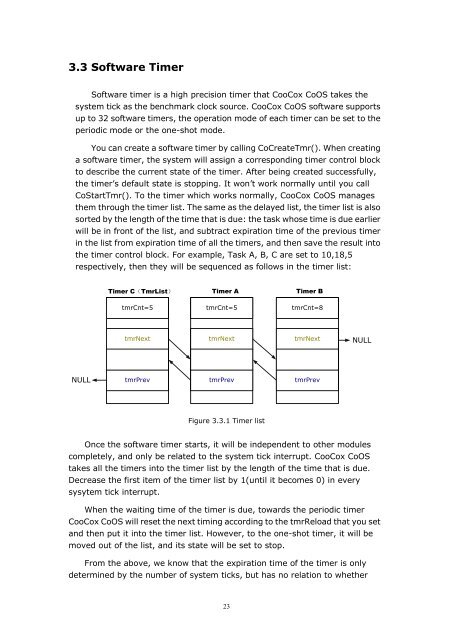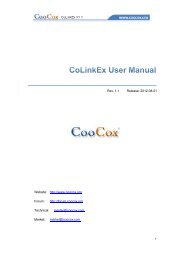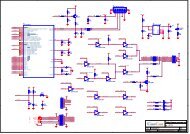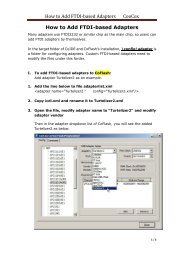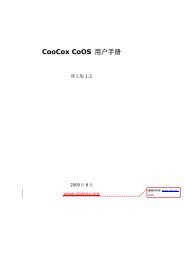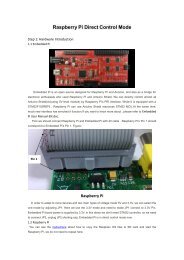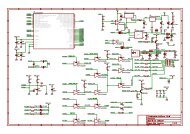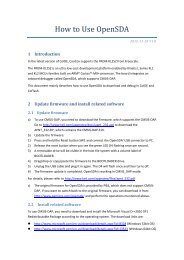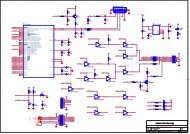CooCox CoOS User's Guide
CooCox CoOS User's Guide
CooCox CoOS User's Guide
You also want an ePaper? Increase the reach of your titles
YUMPU automatically turns print PDFs into web optimized ePapers that Google loves.
3.3 Software Timer<br />
Software timer is a high precision timer that <strong>CooCox</strong> <strong>CoOS</strong> takes the<br />
system tick as the benchmark clock source. <strong>CooCox</strong> <strong>CoOS</strong> software supports<br />
up to 32 software timers, the operation mode of each timer can be set to the<br />
periodic mode or the one-shot mode.<br />
You can create a software timer by calling CoCreateTmr(). When creating<br />
a software timer, the system will assign a corresponding timer control block<br />
to describe the current state of the timer. After being created successfully,<br />
the timer’s default state is stopping. It won’t work normally until you call<br />
CoStartTmr(). To the timer which works normally, <strong>CooCox</strong> <strong>CoOS</strong> manages<br />
them through the timer list. The same as the delayed list, the timer list is also<br />
sorted by the length of the time that is due: the task whose time is due earlier<br />
will be in front of the list, and subtract expiration time of the previous timer<br />
in the list from expiration time of all the timers, and then save the result into<br />
the timer control block. For example, Task A, B, C are set to 10,18,5<br />
respectively, then they will be sequenced as follows in the timer list:<br />
Timer C(TmrList) Timer A Timer B<br />
tmrCnt=5<br />
tmrCnt=5<br />
tmrCnt=8<br />
tmrNext<br />
tmrNext<br />
tmrNext<br />
NULL<br />
NULL<br />
tmrPrev<br />
tmrPrev<br />
tmrPrev<br />
Figure 3.3.1 Timer list<br />
Once the software timer starts, it will be independent to other modules<br />
completely, and only be related to the system tick interrupt. <strong>CooCox</strong> <strong>CoOS</strong><br />
takes all the timers into the timer list by the length of the time that is due.<br />
Decrease the first item of the timer list by 1(until it becomes 0) in every<br />
sysytem tick interrupt.<br />
When the waiting time of the timer is due, towards the periodic timer<br />
<strong>CooCox</strong> <strong>CoOS</strong> will reset the next timing according to the tmrReload that you set<br />
and then put it into the timer list. However, to the one-shot timer, it will be<br />
moved out of the list, and its state will be set to stop.<br />
From the above, we know that the expiration time of the timer is only<br />
determined by the number of system ticks, but has no relation to whether<br />
23


